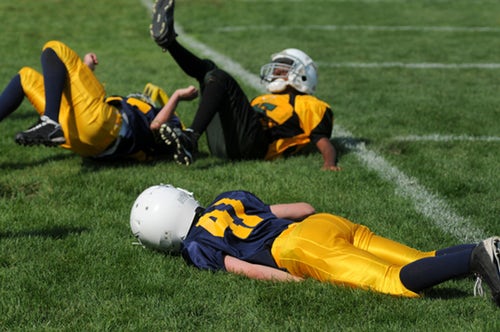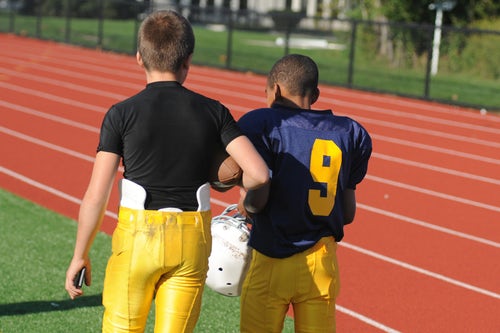nalco group
bone, muscle & joint pain physio
BOOK NOW / WHATSAPP ABOUT YOUR PAIN OR INJURY
- ORCHARD 400 Orchard Road #12-12 Singapore 238875
- TAMPINES 9 Tampines Grande #01-20 Singapore 528735
- SERANGOON 265 Serangoon Central Drive #04-269 Singapore 550265
Home > Blog > Sports Physiotherapy > Sports-related Concussions And Head Injuries
Sports-related Concussions And Head Injuries
Head injuries and concussions can happen in contact sports such as basketball, football, rugby, netball, squash (or even in pure missteps or accidents), and they can be commonplace too.
A concussion usually happens with
- two or more heads colliding
- a fall and hitting head against a surface, with or without a bounce
What happens is that as our human brain is suspended in our skull, covered with cerebro-spinal-fluid (CSF), the sudden quick deceleration of the head can cause the brain to move front and/or back and hit the skull. If the force or impact is strong enough, it may cause brain bruising, and that's what that leads to concussion.
Signs and Symptoms of a Concussion

The symptoms really depends on the severity of the head injury and concussion.
Mild concussion:
- No loss of consciousness
- Slight confusion (i.e. disorientated to either time, date, place)
- Difficulty or inability recalling what just happened
- Patient may report ringing in ears or slight difficulty hearing
- Slight headache or nausea
- Pain over area of contact/collision
Moderate concussion:
- Loss of consciousness (blackout/faint) for less than 3 minutes
- Confusion (commonly unable to recall date, time and place)
- Confused as to what happened or what's happening
- Difficulty or inability to track movement
- Reports loud ringing in ear and/or difficulty hearing
- Delayed vomiting ie vomits moments/hours later with nausea
- Moderate headache
- Pain over area of contact
- Mild to moderate loss of balance
Severe concussion:
- Loss of consciousness (blackout or fainting) for more than 3 mins
- Confusion to time, place, date for more than 5 mins.
- Loss of memory of events before incident
- Immediate vomiting, severe headache and ringing in ear
- Possible increase in heart rate and drop in blood pressure
- Moderate to severe pain over area of contact
- Severe loss of balance
For anyone who has had a concussion, we always recommend that they be monitored for the first 24-72 hours as concussion/head injuries symptoms may "take time to build up" so may only present after some time.
For safety reasons, if any athlete/sportsperson has 2-3 events of even mild to moderate concussions in a season, they can be and are normally advised to retire for the seasons...and sometimes to retire fully if they had experienced 2 moderate-severe concussions.
The reason for this is not that concussions and head injuries symptoms may persist for months and in some cases, years; but sometimes can present with more symptoms through the years.
Post-Concussion Syndrome

Post-concussion syndrome refers to symptoms that presents after a concussion.
They include but is not limited to:
- nausea
- disorientation/confusion
- headaches
- light sensitivity
- sound sensitivity
- memory loss
- attention loss
- anxiety
- etc
For some, it may last for months and years.
Management of head injuries and Concussion
During the acute phase, patient is recommended for complete rest in bed for at least one (1) full week or more, and monitored during this time of rest for any neurological or post-concussion syndrome.
If the patient shows no signs of post-concussion syndrome or symptoms, then the patient may be allowed back to sports if the attending sports physician approves of it. Of course, return to sports need to be gradual and progressive, managed and supervised by a senior physiotherapist in collaboration with the sports physician.
